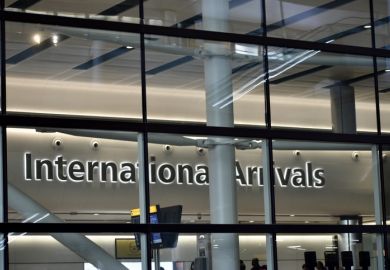It is “ludicrous” that new medical schools are opening in the UK with no British students, the shadow health secretary has said.
Brunel University London began a new medicine degree programme in September but all 100 of its first intake are from overseas because the institution has not been given any UK government-funded places.
Chester University is also due to open a medical school catering solely to international students because places for domestic students are capped. Both say they hope to offer places to UK students “soon”.
Making a speech at the centre-right Policy Exchange thinktank, the Labour Party’s Wes Streeting, shadow secretary of state for health and social care, said the situation was indicative of the “short-termism” of the current government.
Then education secretary James Cleverly reintroduced the 7,500-student cap on medical school places in August after two years of it being lifted during the pandemic, resulting in intakes of more than 10,000.
This led to 2022 being the hardest year on record to get a medical school place while, at the same time, the NHS is experiencing a record number of vacancies.
Mr Streeting, who wants to double the number of medical school places in the country, said there were 4,600 fewer general practitioners working in the health service compared with a decade ago.
There was “no greater symbol of the short-termism of this government than its decision this summer to cut 3,000 medical school places”, he said.
“They turned away thousands more straight-A students in England wanting to become doctors at the moment when we needed them most,” said Mr Streeting.
“We are left in the ludicrous situation where Brunel University has opened a medical school with not a single British student on its books.”
Mr Streeting said it also “lacked coherence” for the government to be talking about bringing down immigration at the same time as limiting opportunities for training British students.
“We either need to train more homegrown talent to provide the NHS with the doctors and nurses we need, as Labour is proposing, or we need to recruit more staff from countries that already have desperate shortages of medics, as this government is doing,” he said.
The shadow health minister – a former president of the National Union of Students (NUS) – was speaking at the launch of a new report by Policy Exchange that outlines a roadmap for how the country could grow medical school places to 15,000 a year by 2029.
This would include opening up to 15 new medical schools, expanding existing medical training centres and the delivery of more clinical placements.
Critics of the policy say places cannot be rapidly expanded while retaining the quality of the current medical school education, with a lack of placements a particular issue.
Mr Streeting admitted that retaining trainees was as big an issue as recruiting new ones but said he hoped his overall vision for reform of the health service would convince them to stay in the NHS, rather than seek work in another sector or overseas.
Former NHS workers who had left because of burnout or disillusionment could also be recruited to come back and play a role in expanding the educational opportunities on offer for a new generation, he suggested.




